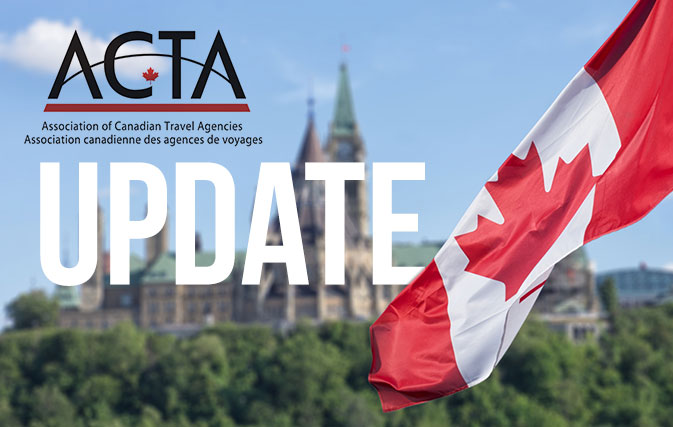TORONTO — ACTA has joined other travel industry groups in urging the Canadian government to ease on-arrival PCR test requirements for travellers in favour of reallocation of those tests into community use.
Mandatory PCR testing should be lifted for fully-vaccinated, asymptomatic travellers so these tests can be used to support Canada’s domestic testing needs, says ACTA.
“It is important that the Government of Canada remove these temporary measures – as well as others introduced over the past two years — in a timely manner based on science, data and information gathered globally,” says Wendy Paradis, ACTA president.
In recent days groups including the Canadian Travel & Tourism Roundtable, as well as the chief medical officers for Air Canada, WestJet and Pearson Airport, have urged the federal government to reduce or eliminate on-arrival PCR testing at Canada’s airports.
And on Wednesday, IATA sent a letter to Dr. Theresa Tam, Canada’s Chief Public Health Officer, specifically addressing Canada’s post-arrival testing requirement. “The recovery of the airline industry is critical to building back a better Canada. Damaging that recovery to stop the spread of a virus that is already present in 20-40% of the population makes no sense and should be eliminated immediately,” IATA’s Vice President, North America, Douglas Lavin wrote to Dr. Tam.
“IT DOES NOT MAKE SENSE”
As provinces face PCR test shortages, there is an urgent need to get testing capacity into the wider population.
“It does not make sense to use these precious resources to test arriving passengers, who are already fully-vaccinated and who already have negative molecular tests prior to departure,” said Paradis.
“The mandatory arrival testing should be lifted in order to divert urgently needed testing resources back to communities to support sick Canadians,” she added.
“This is a significant barrier to travel, especially as testing systems are strained and delays in returning arrival test results occur,” said Paradis. “We join in the growing appeals to stop mandatory arrival testing and quarantine requirements.”
Several medical experts are calling for the arrival testing to be stopped, along with several prominent media outlets.”
This week an editorial in the Toronto Sun said Air Canada, WestJet and Pearson Airport “are right to call on the Canadian government to scale back the testing required for people travelling into Canada. The current rules for entry to Canada are over the top. The time is right to lower the burden placed on travellers.”
The Sun added: “We keep piling on the rules but never eliminate any of the previous ones. That approach has to change. … It’s time to get back to normal. That includes easing the rules around travel.”
And as a Globe and Mail editorial this week noted: “Canada should put in place an extensive program of random PCR screening of international arrivals, to act as an early warning system. But for now, this country’s quest to get through omicron is largely a domestic fight. It makes sense to concentrate our limited testing resources where they can do the most good.”
Despite the push from multiple fronts to ease testing requirements at the border, the federal government says PCR testing for travellers isn’t going away anytime soon.
Earlier this week Health Minister Jean-Yves Duclos was asked whether or not the federal government is considering ramping down on-arrival PCR tests.
“Currently no, that’s not what’s going to happen,” answered Duclos. “We don’t think we’ve reached the peak [of omicron],” he said. “And when we look abroad we see the situation is worsening.”
However Duclos did say that “as the situation evolves we will keep adjusting our measures in all sorts of ways including at the border.”

